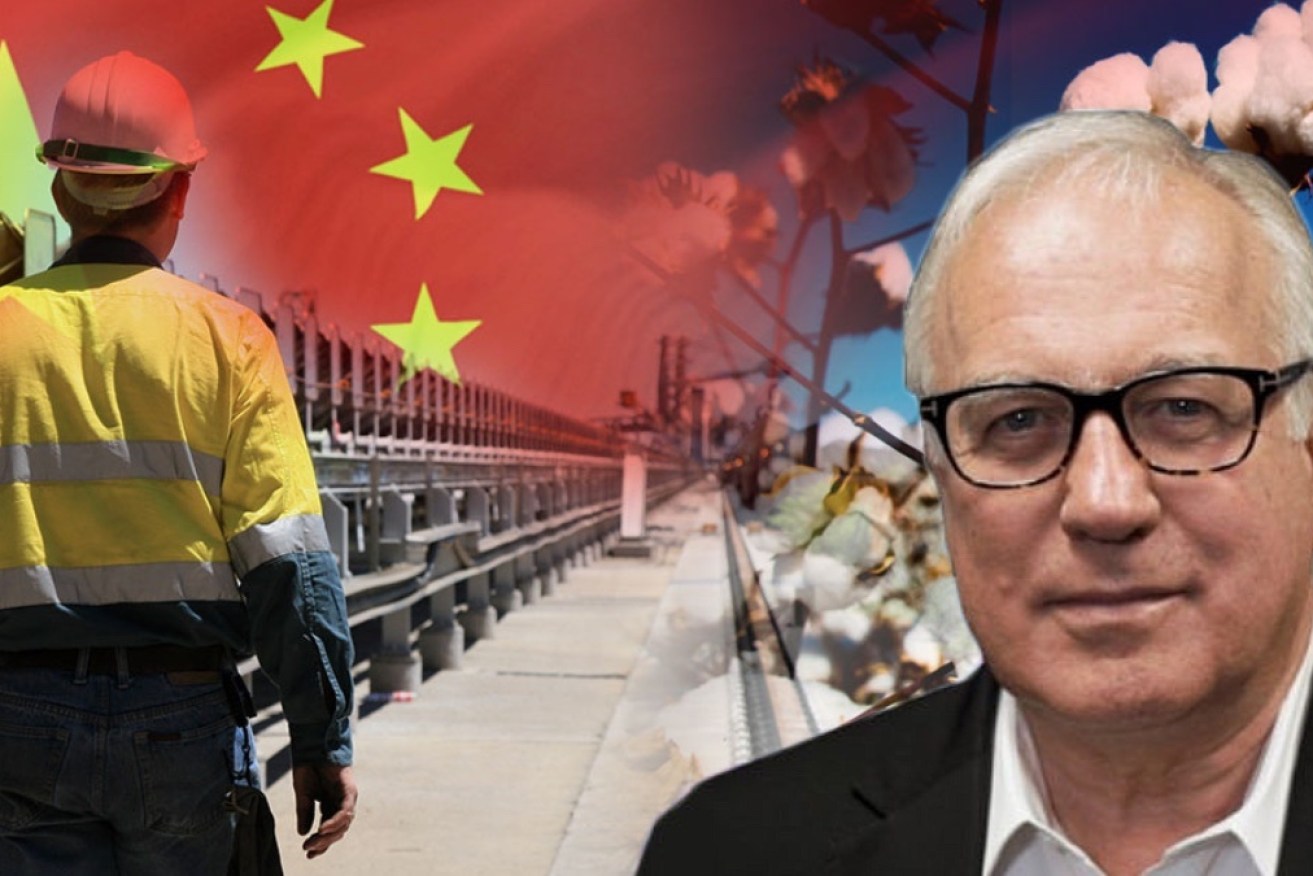This thought became a bit less hypothetical last week when United States House of Representatives speaker, Nancy Pelosi, stepped onto Taiwanese soil.
One can now imagine teams of analysts in the Department of Foreign Affairs and Trade producing briefing papers for federal cabinet on the prospects of Australian sanctions against China – what they might involve, and how much of a disaster it would be for the Australian economy.
We’ve sanctioned Russia and warned the tsar, but that’s a bit like the Brunswick branch of the ALP passing a resolution condemning US imperialism – we don’t do much trade with Russia, nor it with us, so that was gesture geopolitics.
But last week we were reminded of China’s importance to Australia with the June trade data from the ABS: Exports to China in June were $16.3 billion for the month, underpinning a record trade surplus of $17.8 billion with a huge increase in sales of coal and LNG to both China and India.
Leaving aside the obvious tenuousness in basing your economy on sales of fossil fuels, relying so much on sales of anything to China is not unlike Germany’s reliance on Russia for its supplies of energy, which has not turned out very well at all.
At around the same time the June trade data were being released by the ABS, Nancy Pelosi was shaking hands with the President of Taiwan and China was duly going berserk, warning of all sorts of dire consequences as a result of Pelosi’s “malicious and manic” visit.
In the event, they fired some missiles and conducted military drills around Taiwan. Condemnation rained down upon China, including from Australia.
Parlous state of China-US relations
It’s fair to say that China-US relations are now even worse than they were when Donald Trump was in the White House raging and waging a trade war against China and blaming it for just about everything.
But the US has no interest in picking a serious fight with China: President Biden tried to talk Pelosi out of her trip, clearly to no avail.

US President Joe Biden attempted – unsuccessfully – to talk Nancy Pelosi out of her Taiwan trip. Photo: AP
Australia has even less interest in picking a fight with China, and Prime Minister Anthony Albanese and Foreign Minister Penny Wong have been at pains to try to repair the damage done by the Morrison administration.
But a fight is what we are going to get.
China has become an aggressive, revisionist power, with an explicit aim of changing the world order, laid out in its “global security initiative” earlier this year, nourished by arrogance built from the economic strength that comes from decades of growth compounding at 10 per cent a year.
Beijing is also determined to bring Taiwan into its fold, and while there is very little chance of a full Chinese invasion of Taiwan in the near future, it could do many things short of that, and probably will.
They could impose a naval blockade of Taiwan, or occupy some of the small islands around Taiwan that Taipei still controls and they could even fire some missiles onto targets within Taiwan itself, like the US just did to kill Al-Qaeda leader Ayman al-Zawakiri in Kabul.
Or Beijing could step up its support for Russia in the Ukraine war, perhaps supplying it with arms, to signal its displeasure with the US.
What of Australian defence?
Last week Defence Minister Richard Marles launched a strategic review of Australia’s defence, to report back by March next year. Paul Dibb, author of the influential 1987 defence white paper, then went on the ABC’s 7.30 and said: “We now face the probability of high-intensity conflict in our own immediate strategic environment.’’
It’s certainly true that the Australian Defence Force needs updating and money spent on it, but the lesson from Ukraine seems to be that sanctions come before conflict.
Pelosi’s visit to Taiwan won’t trigger a US-China war, and even if things escalated to something less than an invasion of Taiwan, America would not launch a full-scale attack on China, but Biden would be under immense pressure to do something, and that would mean sanctions, which have proven so potent with Russia.
But what would Australia be expected to do if the US did move from rhetoric to sanctions? At what point in the process of escalation would Australia have to join in?
Obviously, if there was an all-out war between them because China actually did invade Taiwan, or if, God forbid, China invaded Australia, as Paul Dibb seems to have been hinting with his talk of needing to defend the north of the country, then all bets are off and trade between Australia and China would go to zero, catastrophically.
Neither of those of things is remotely likely, but there are a lot of intermediate steps on the way to that.
So at the same time as Stephen Smith and Angus Houston review the Defence Force with an eye on China, a new strategic review of Australia’s trade with China, and what the alternatives might be, is in order as well.
Look how much strife Europe is in, having put its energy eggs in the Russian basket.
Alan Kohler writes twice a week for The New Daily. He is also editor in chief of Eureka Report and finance presenter on ABC news










